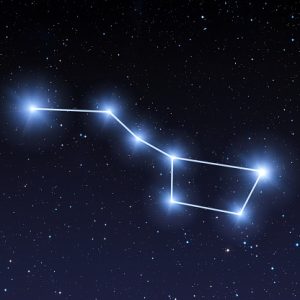

Stargazing Success - Keep It Simple!
Have you ever dreamed about being able to name the stars and constellations? Or know exactly when and where the moon and planets will rise? Have you started out by reading books and trying to memorize star charts only to go outside, look up, and see nothing familiar? You are not alone!
Stargazing can be overwhelming, especially if you set your expectations too high. I had similar aspirations when I started stargazing over five years ago and quickly became discouraged. It was only when I stopped trying to "know it all" that I began to have some success in enjoying the night sky.
Here are my tips for becoming a successful stargazer:
- KEEP IT SIMPLE Focus on one to five stars/planets at first and get familiar with them before moving on to other objects. Just get outside and look up for five to ten minutes. No need to camp out for one hour each night. After your five minutes, go back inside and review your star chart, website, app, or planisphere to see if you can identify what you observed. Go out and take a second look to test your conclusions. Don't worry if you're not sure what you're seeing. I've been doing this for over five years and I'm still not sure some nights! Make this easy do-it-yourself planisphere to help you https://www.instructables.com/Make-Your-Own-Planisphere/
- BE CONSISTENT Go outside at the same time and at the same place each night. The stars move significantly over the course of the evening which can cause confusion if you are not consistent. Try to minimize light pollution or go to a dark place to do your stargazing.
- BE PERSISTENT AND PATIENT Don't expect to see the patterns right away. Just keep at it. You will learn much more from twelve nights of five-minute stargazing than you will from one night of sixty minutes. The sky looks different each night depending on the cloud cover and atmosphere. It takes repeated viewings to become familiar with the patterns and recognize the stars.
- LEARN TO IDENTIFY THE BRIGHTEST STARS FIRST It's tempting to focus on the constellations because they look so pretty and complete on the diagrams. However, what you see in the sky rarely looks like the complete constellation in the book, app or chart. Learn about the brightest stars in the sky from this infographic on the StarWalk website https://starwalk.space/en/infographics/15-stars-everyone-can-find
- LEARN ABOUT VENUS, MARS and JUPITER These planets are larger than most stars and move more quickly. They can be easily confused with the stars you are seeking. Use an app or a chart to learn when and where they will rise. https://www.timeanddate.com/astronomy/night/ https://earthsky.org/tonight/
- USE AN APP These tools are relatively easy and can really help in your stargazing journey. Just point your phone at the star you are looking at to learn its name and constellation. Try Moon Pro, Apple Planets, StarWalk2 and SkyTonight. https://apps.apple.com/us/app/deluxe-moon-pro-app-widget/id482361332 https://apps.apple.com/us/app/planets/id305793334?platform=iphone https://play.google.com/store/apps/details?id=com.vitotechnology.sky.tonight.map.star.walk https://play.google.com/store/apps/details? id=com.vitotechnology.StarWalk2FreeAds&pli=1
- CONSTELLATIONS Once you have learned to identify several stars (Sirius, Procyon, Betelgeuse, Vega, Altair, Deneb, Arcturus, Capella) move on to the constellations (Orion, Canis Major, Ursa Major aka Big Dipper, Aquila, Auriga, Cassiopeia, Gemini, Leo). HINT - in each season, different constellations and stars will be visible in your night sky. Use your app or planisphere to help you identify which ones you can expect to see.
- SPOT THE STATION This is a bonus tip. It is not a star or a planet. Sign up here to get a notification about when the Space Station will be visible in the night sky. It will look like a moving planet and will be visible for about five minutes. Very cool! https://spotthestation.nasa.gov/
- HAVE FUN! Combine your stargazing with a nighttime walk with your favourite fur baby, a cozy bonfire with family and friends, or if you are really lucky a soak in a hot tub.
This wouldn't be a library blog without a book list. Here are some recommendations from our collection, plus a link to our new stargazing kit, complete with a telescope! There is everything here from a simple guide to the stars to a deep dive into the universe. Good luck with your stargazing!
Place a hold on our stargazing kit here:
Now that longer nights are upon us, take a break from your screen and look up to the sky! Billions of light years of history shine brightly above.


Add a comment to: Stargazing Success!